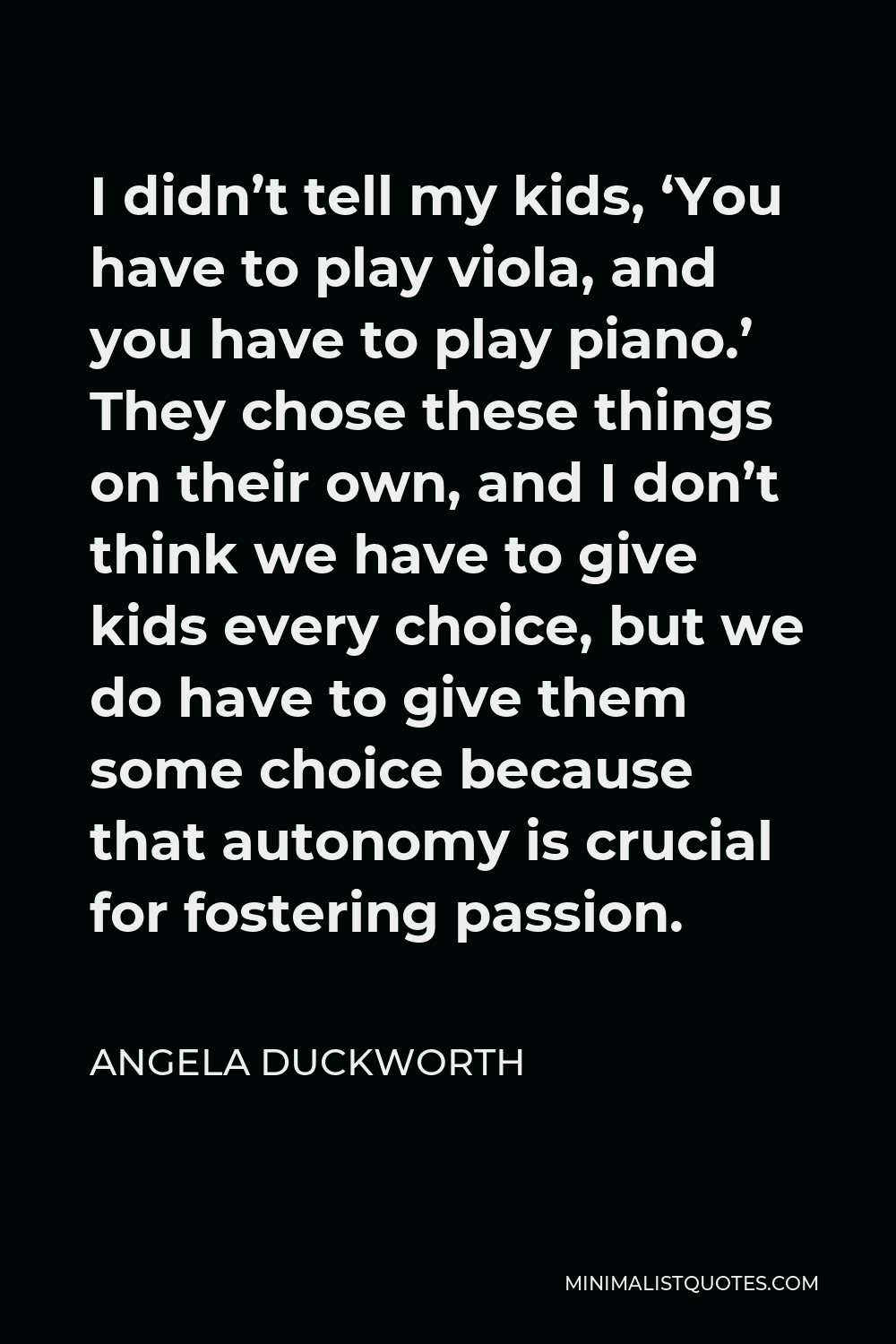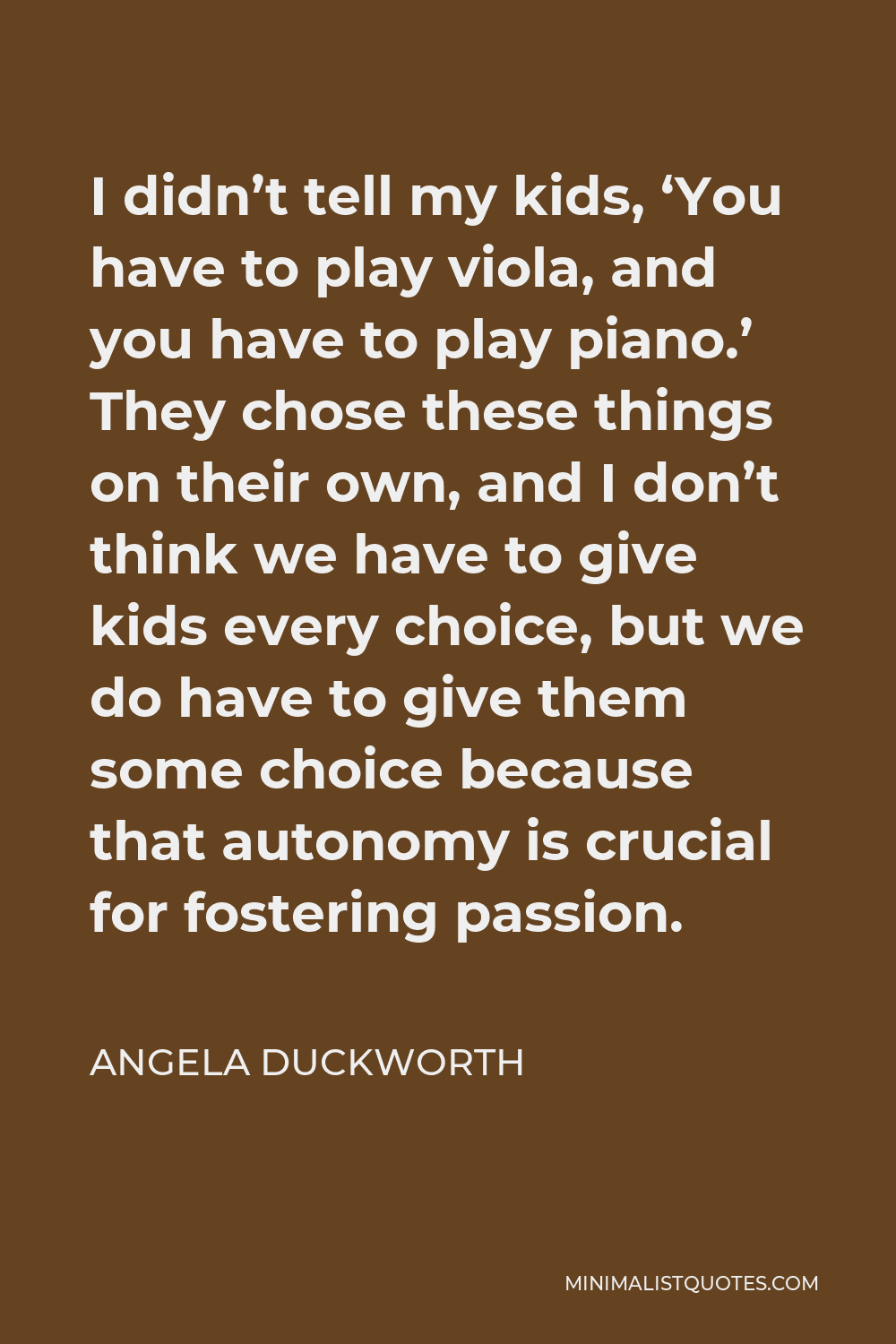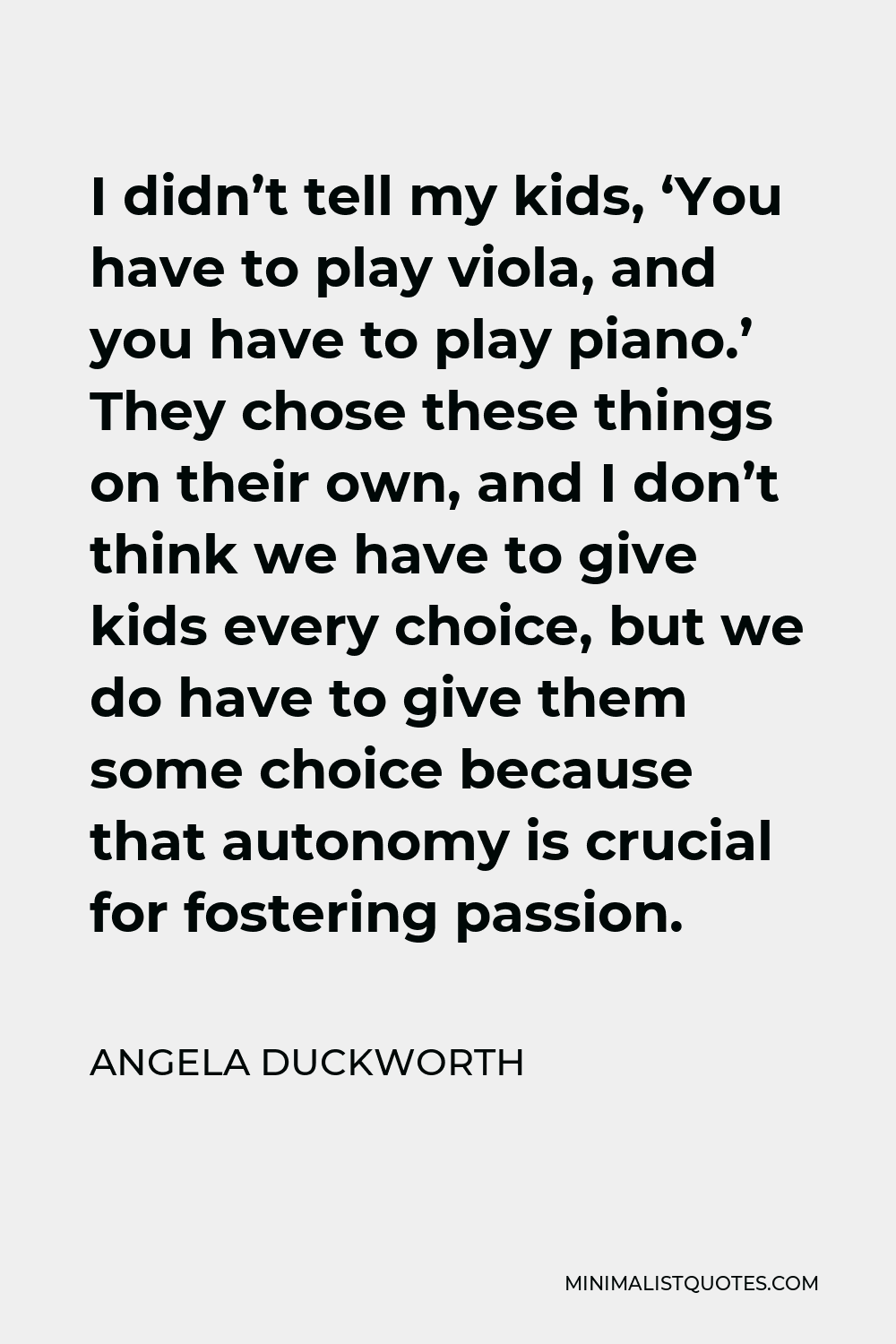If you are a young person who is wanting to develop a passion, you cannot expect anyone else to tell you what that passion would be.
ANGELA DUCKWORTHI didn’t tell my kids, ‘You have to play viola, and you have to play piano.’ They chose these things on their own, and I don’t think we have to give kids every choice, but we do have to give them some choice because that autonomy is crucial for fostering passion.
More Angela Duckworth Quotes
-





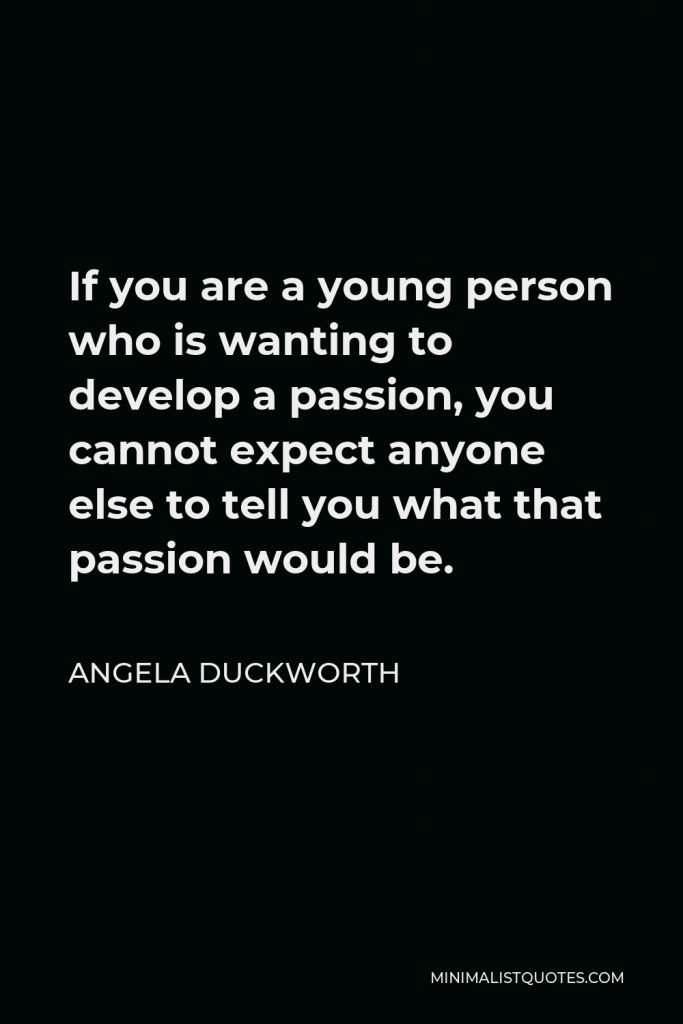

-





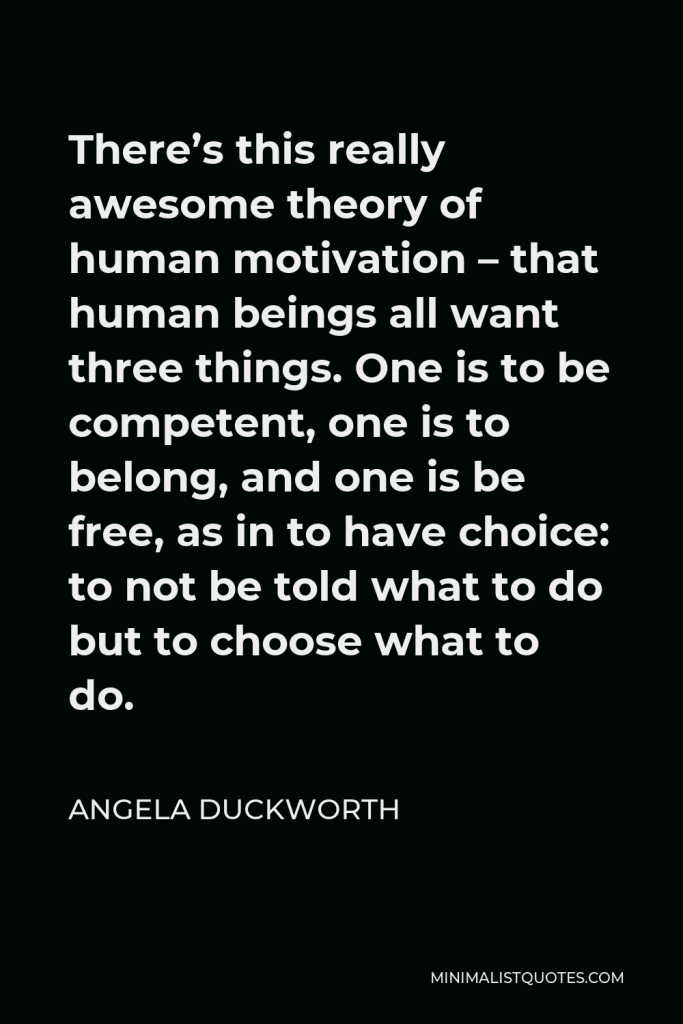

There’s this really awesome theory of human motivation – that human beings all want three things. One is to be competent, one is to belong, and one is be free, as in to have choice: to not be told what to do but to choose what to do.
ANGELA DUCKWORTH -







I believe kids should choose what they want to do, because it’s their life, but they have to choose something, and they can’t quit in the middle unless there’s a really good reason.
ANGELA DUCKWORTH -





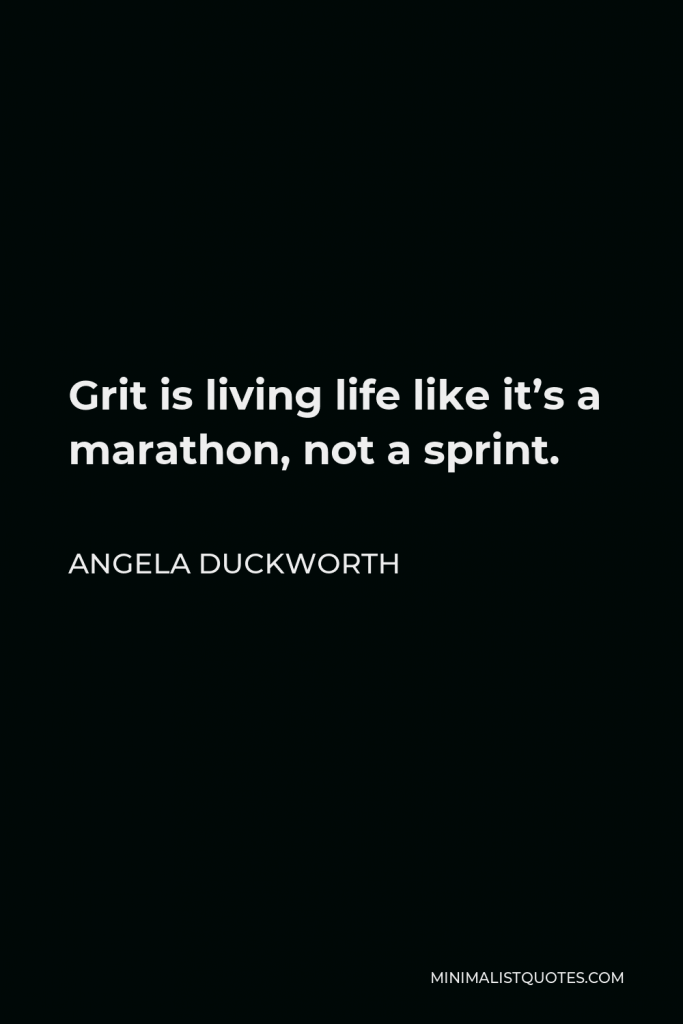

Grit is living life like it’s a marathon, not a sprint.
ANGELA DUCKWORTH -





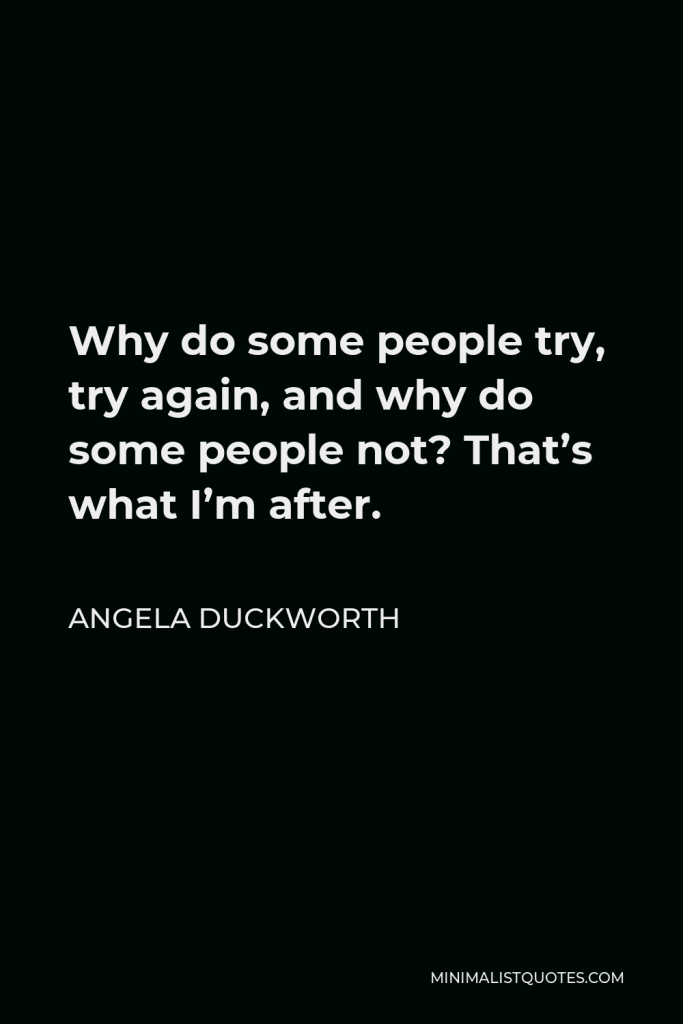

Why do some people try, try again, and why do some people not? That’s what I’m after.
ANGELA DUCKWORTH -





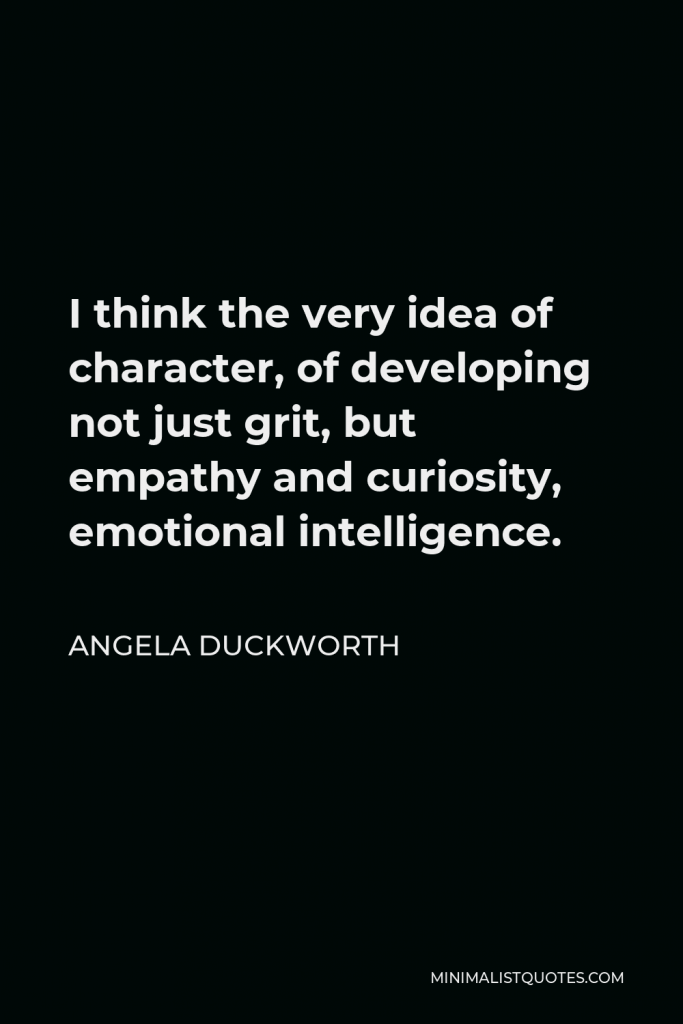

I think the very idea of character, of developing not just grit, but empathy and curiosity, emotional intelligence.
ANGELA DUCKWORTH -





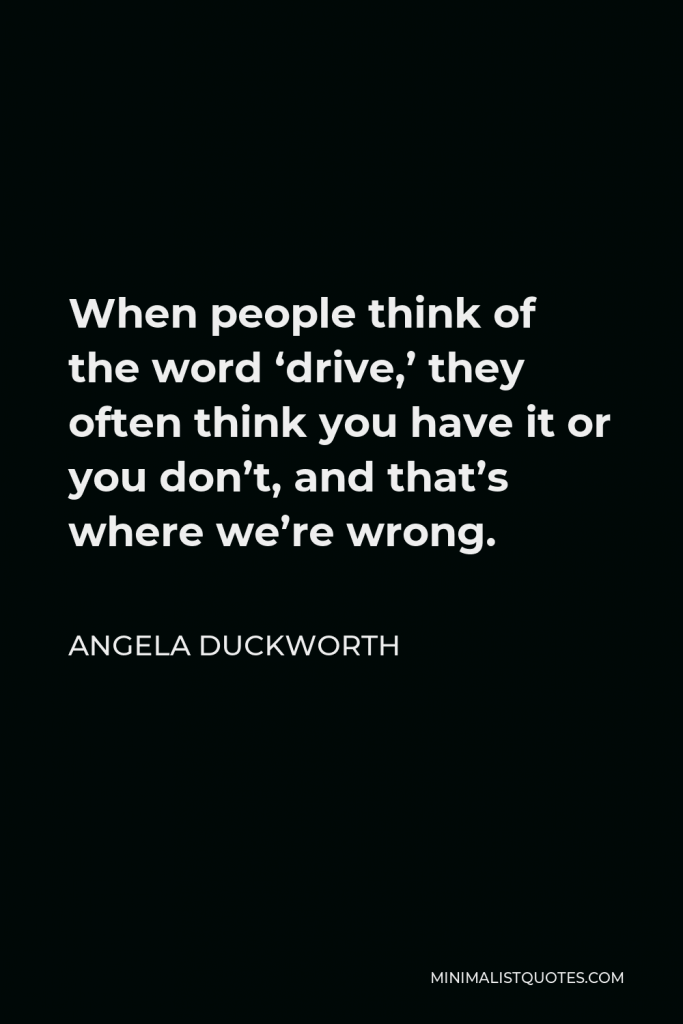

When people think of the word ‘drive,’ they often think you have it or you don’t, and that’s where we’re wrong.
ANGELA DUCKWORTH -





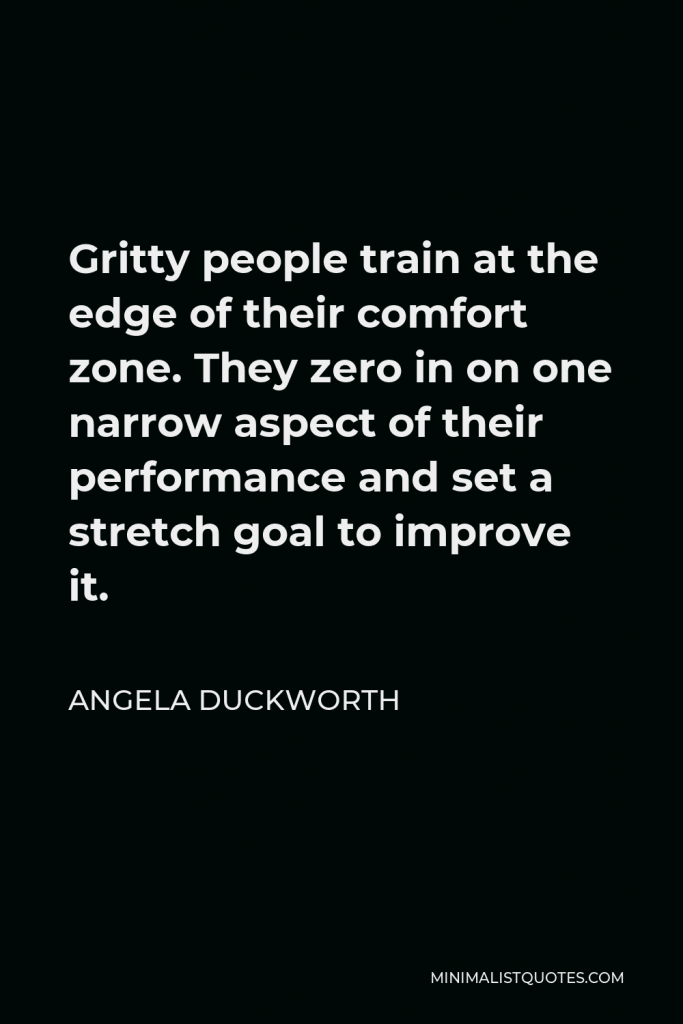

Gritty people train at the edge of their comfort zone. They zero in on one narrow aspect of their performance and set a stretch goal to improve it.
ANGELA DUCKWORTH -







Drive is something that can be encouraged by a wonderful teacher, by a terrific classroom environment, by an awesome soccer team that you are on, and it can be squashed as well.
ANGELA DUCKWORTH -





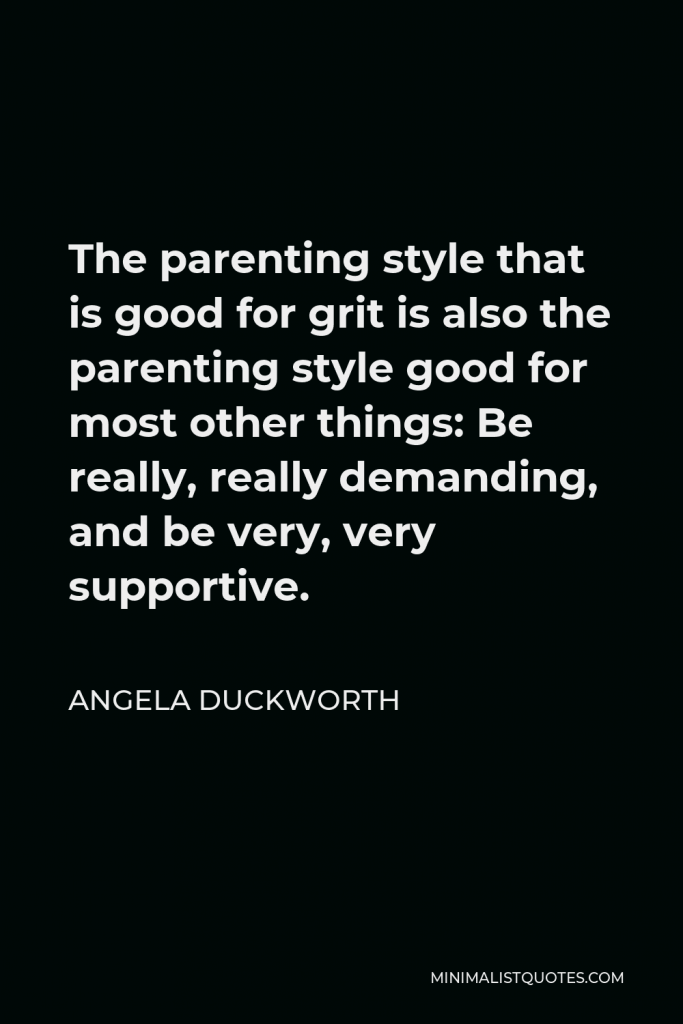

The parenting style that is good for grit is also the parenting style good for most other things: Be really, really demanding, and be very, very supportive.
ANGELA DUCKWORTH -







Most teachers, when surveyed, say that it is part of their job to help students develop things like grit. This is especially true at the elementary and middle school levels. They feel it’s part of their vocation to teach other things that are not formally academic content.
ANGELA DUCKWORTH -





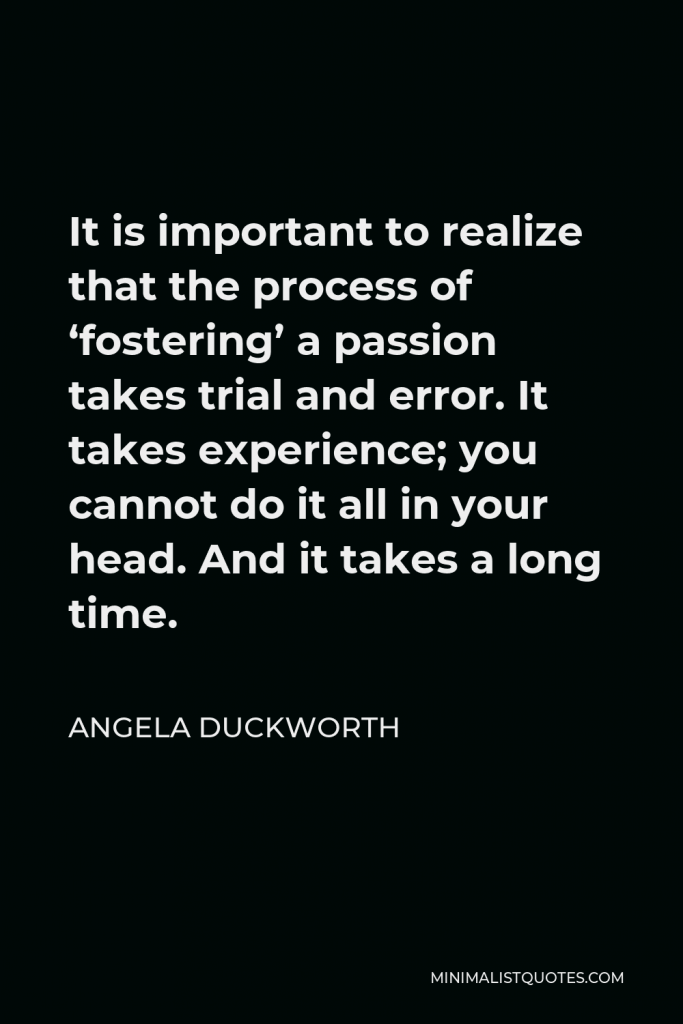

It is important to realize that the process of ‘fostering’ a passion takes trial and error. It takes experience; you cannot do it all in your head. And it takes a long time.
ANGELA DUCKWORTH -





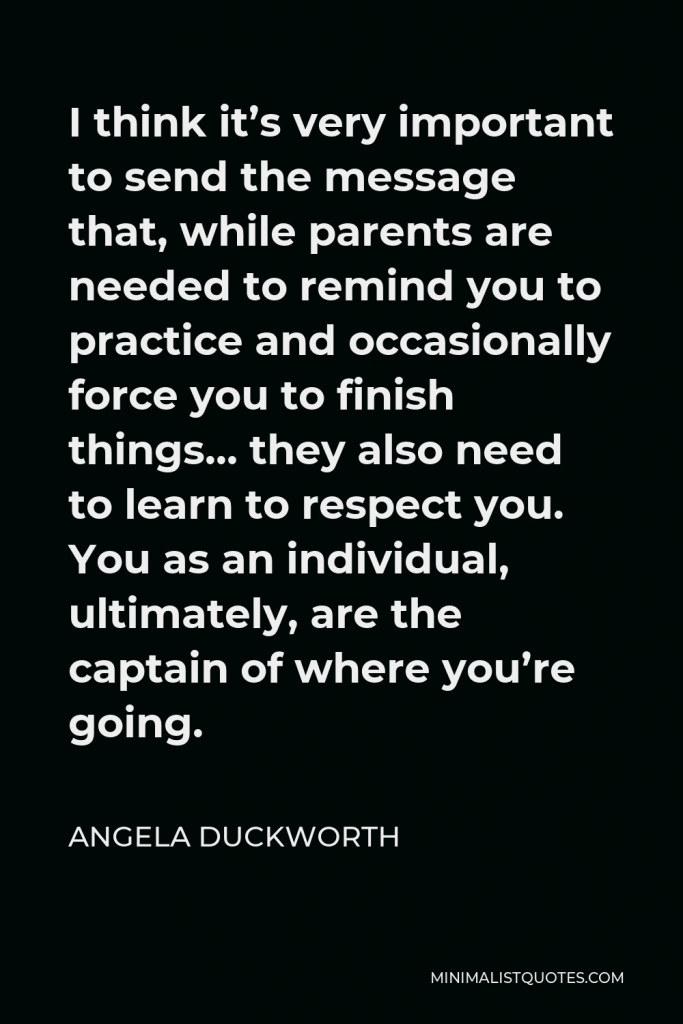

I think it’s very important to send the message that, while parents are needed to remind you to practice and occasionally force you to finish things… they also need to learn to respect you. You as an individual, ultimately, are the captain of where you’re going.
ANGELA DUCKWORTH -







I don’t spend a lot of time thinking about my genes because I can’t do anything about them.
ANGELA DUCKWORTH -







Striving is exhausting. Sometimes I do say things like, ‘I wish I were not quite this driven to be excellent.’ It’s not a comfortable life. It’s not relaxed. I’m not relaxed as a person. I mean, I’m not unhappy. But… it’s the opposite of being comfortable.
ANGELA DUCKWORTH -







I’m not a policy oriented person. I’m constrained to what I study. But educational policy has not yet taken adequate note of the whole child. Kids are not just their IQ or standardized test scores. It matters whether or not they show up, how hard they work.
ANGELA DUCKWORTH
